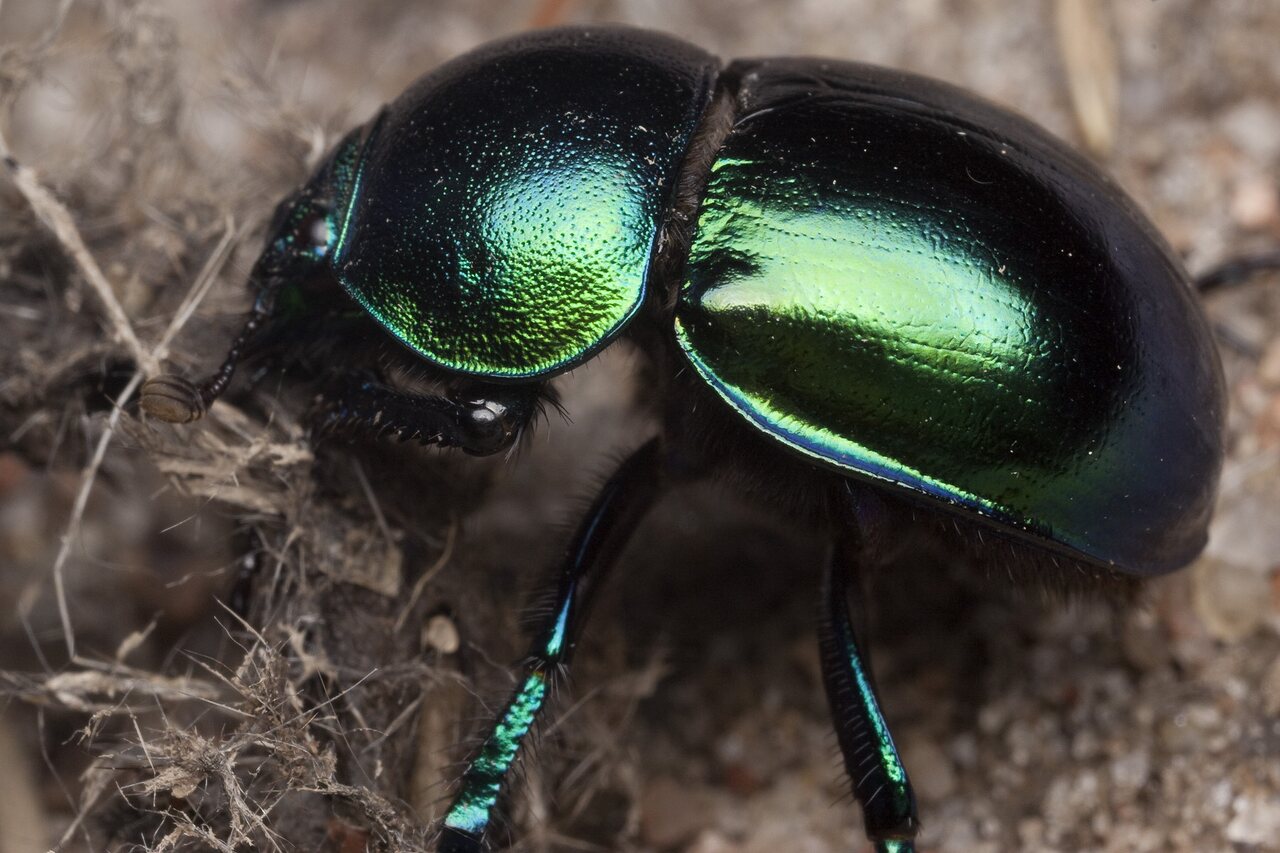
Trypocopris vernalis · žvilgantysis mėšlavabalis
- Geotrupes vernalis
- spring dumbledor, spring dor beetle
- Frühlingsmistkäfer
- žvilgantysis mėšlavabalis
- pavasara bambals
- żuk wiosenny
It is found in Europe and Asia Minor. Trypocopris vernalis prefers open or semi-open areas and young woodlands being most prevalent during the spring and early summer, with rare sightings in the autumn. The larva of Trypocopris vernalis feeds on dung of animals such as sheep and red foxes. Burrows are excavated and by the female to about 10 cm directly below or very near to host material, they are provisioned and sealed with soil but unlike those of Geotrupes, each will accommodate only a single larva. Adults are mostly crepuscular but may also be seen flying in bright sun.
This distinctive species is rather dull black in colour with a variable blue, green or pale pink metallic reflection, the underside is usually metallic blue and the body is rounded in outline. The pronotum is clearly punctured with both large and small punctures and the basal border is evident only near the middle. The elytra lack distinct striae and have granular microsculpture on the interstices. The abdominal sternites have distinct punctures and long pubescence evenly distributed across the width.
‥
0 comments
Add a comment